Legal Regulation and Compliance Assessment Worksheet - Law Course
VerifiedAdded on 2021/10/29
|5
|606
|92
Homework Assignment
AI Summary
This assignment explores the intricacies of legal regulation and compliance, focusing on issues such as privacy rights, constitutional challenges, and the impact of legal frameworks like the FISA Amendments Act. The assignment addresses questions related to the Electronic Frontier Foundation (EFF), the U.S. government's surveillance practices, and the implications of sharing private information. It examines the legal implications of unauthorized information sharing, the importance of information security, and the effects of the FISA Amendments Act of 2008. The assignment emphasizes the importance of protecting individual privacy and the potential consequences of violating these rights within the context of telecommunications and data security.
1 out of 5
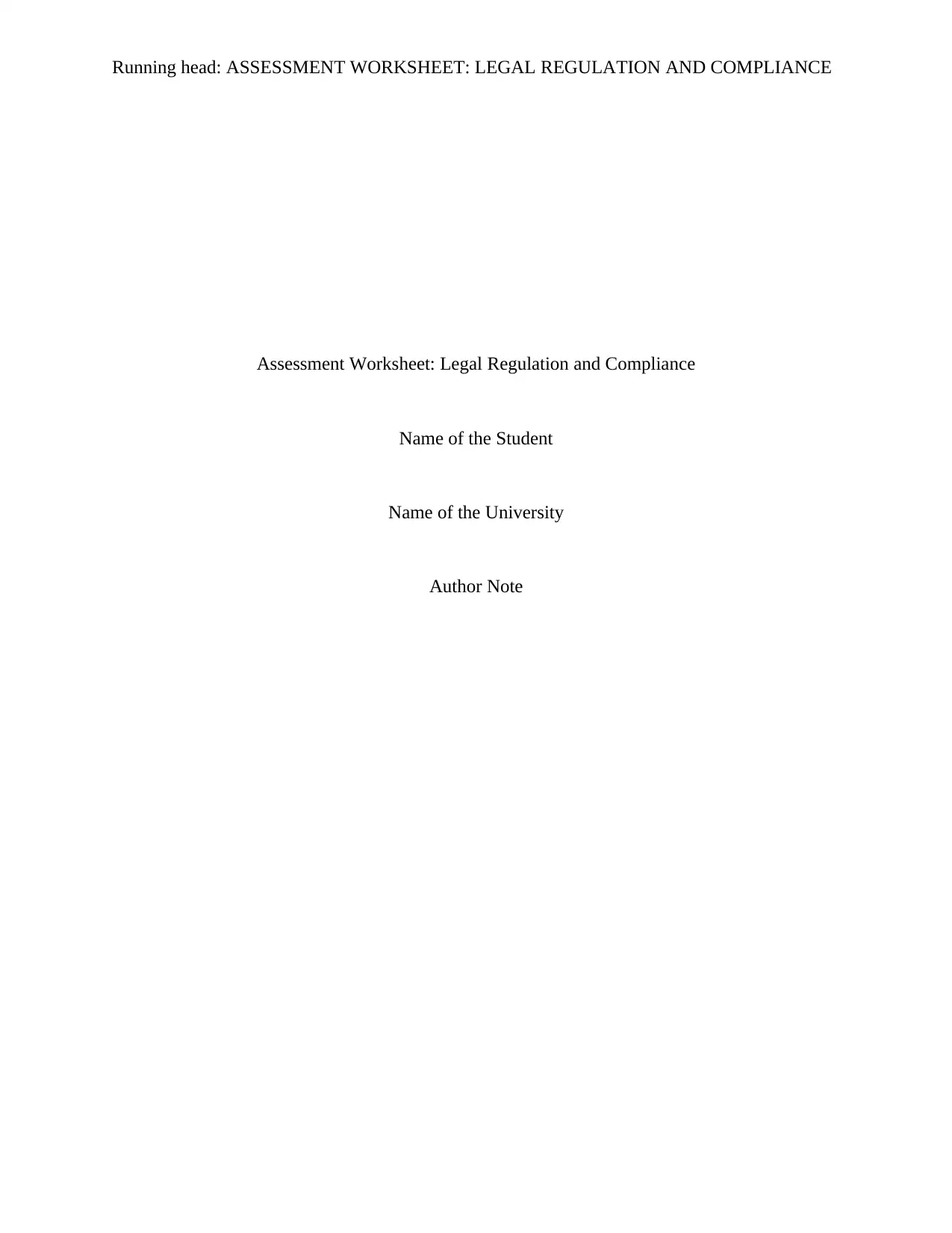
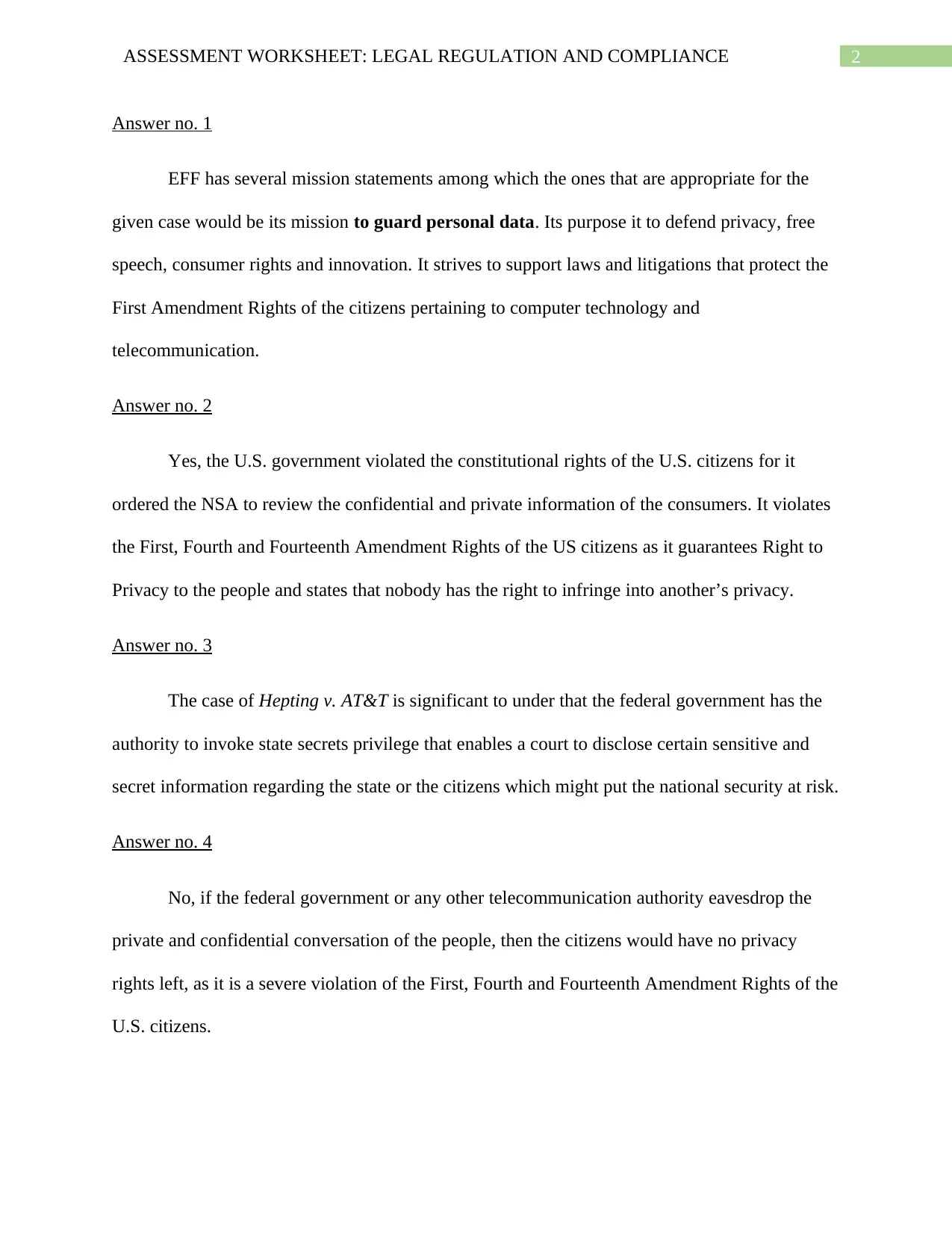
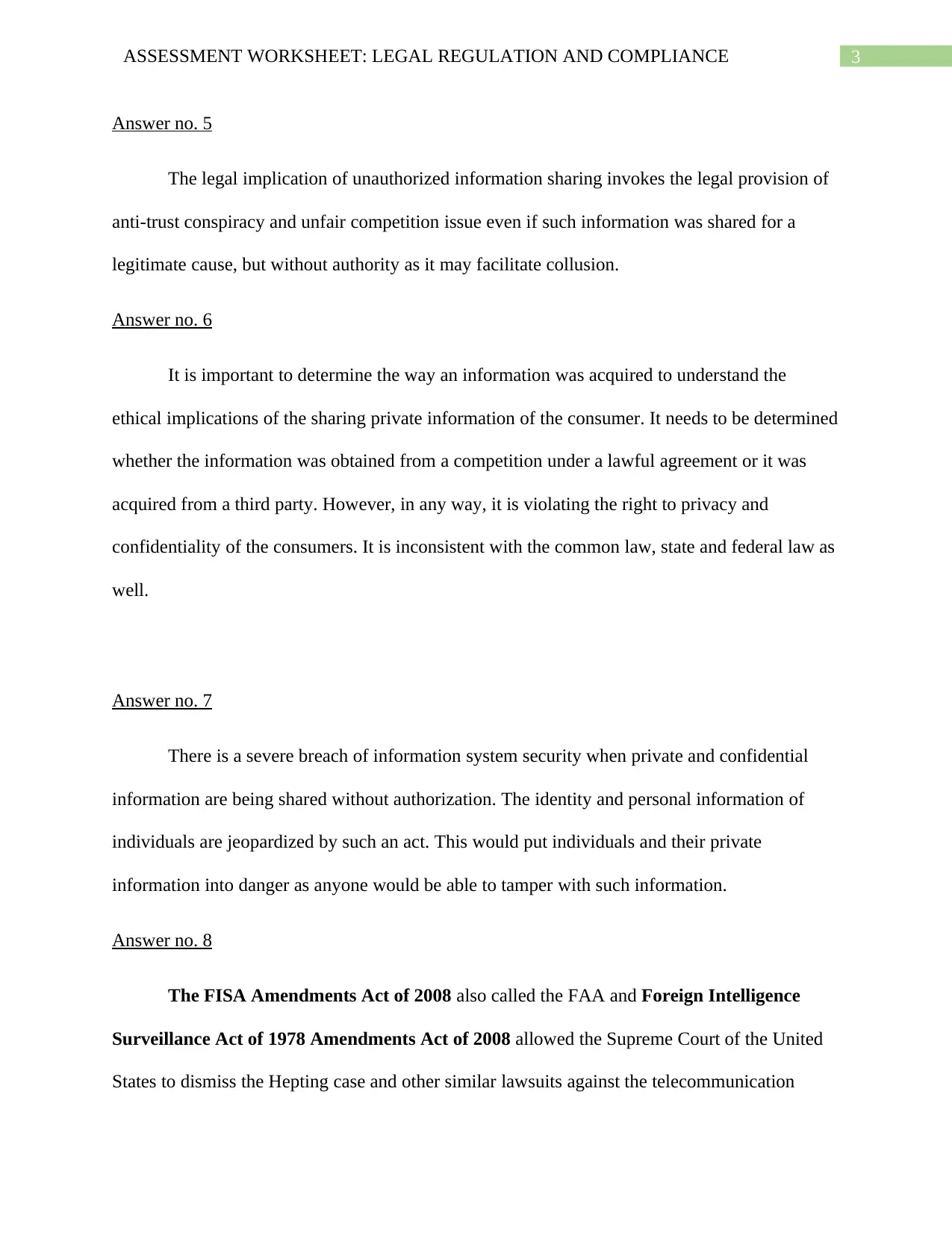

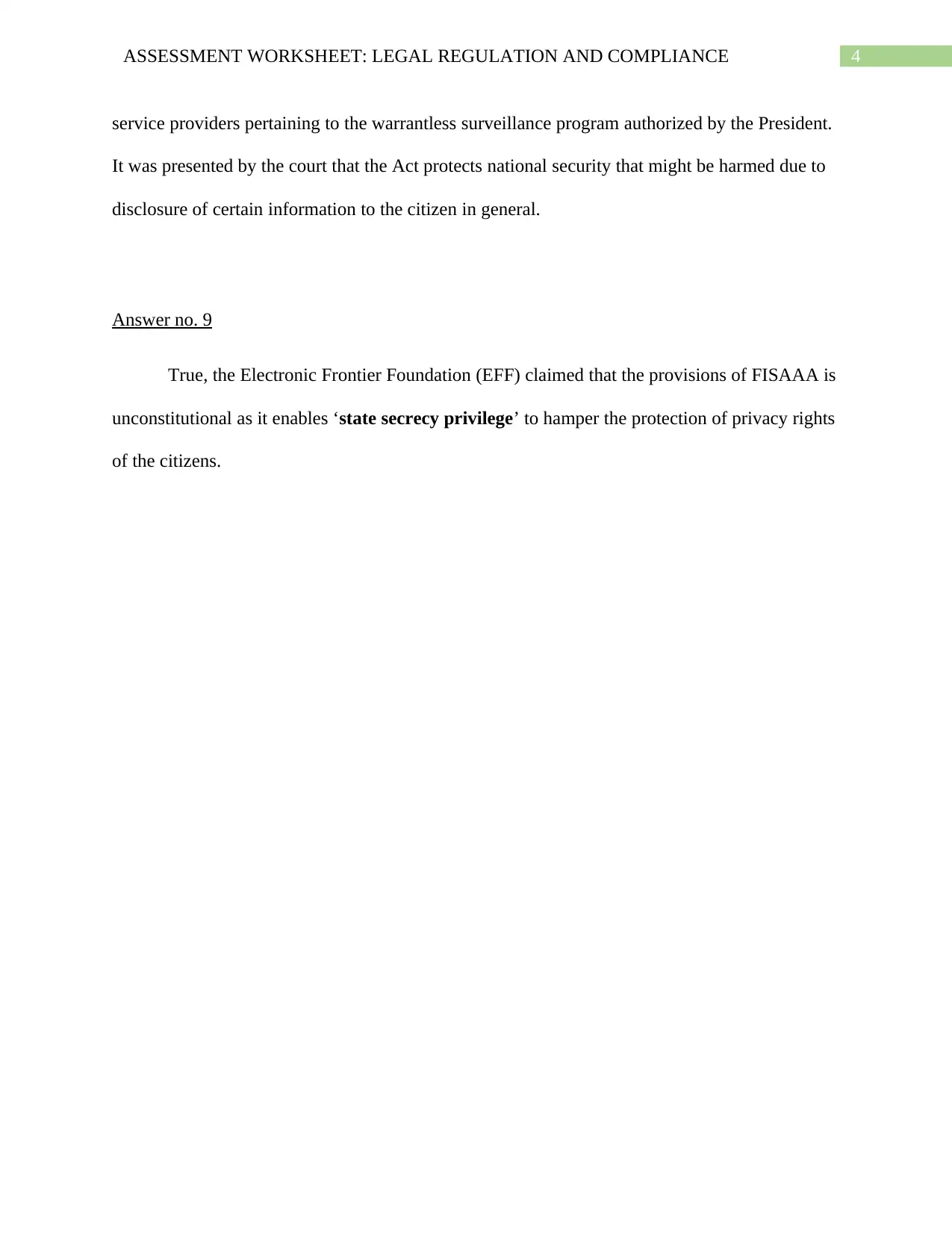
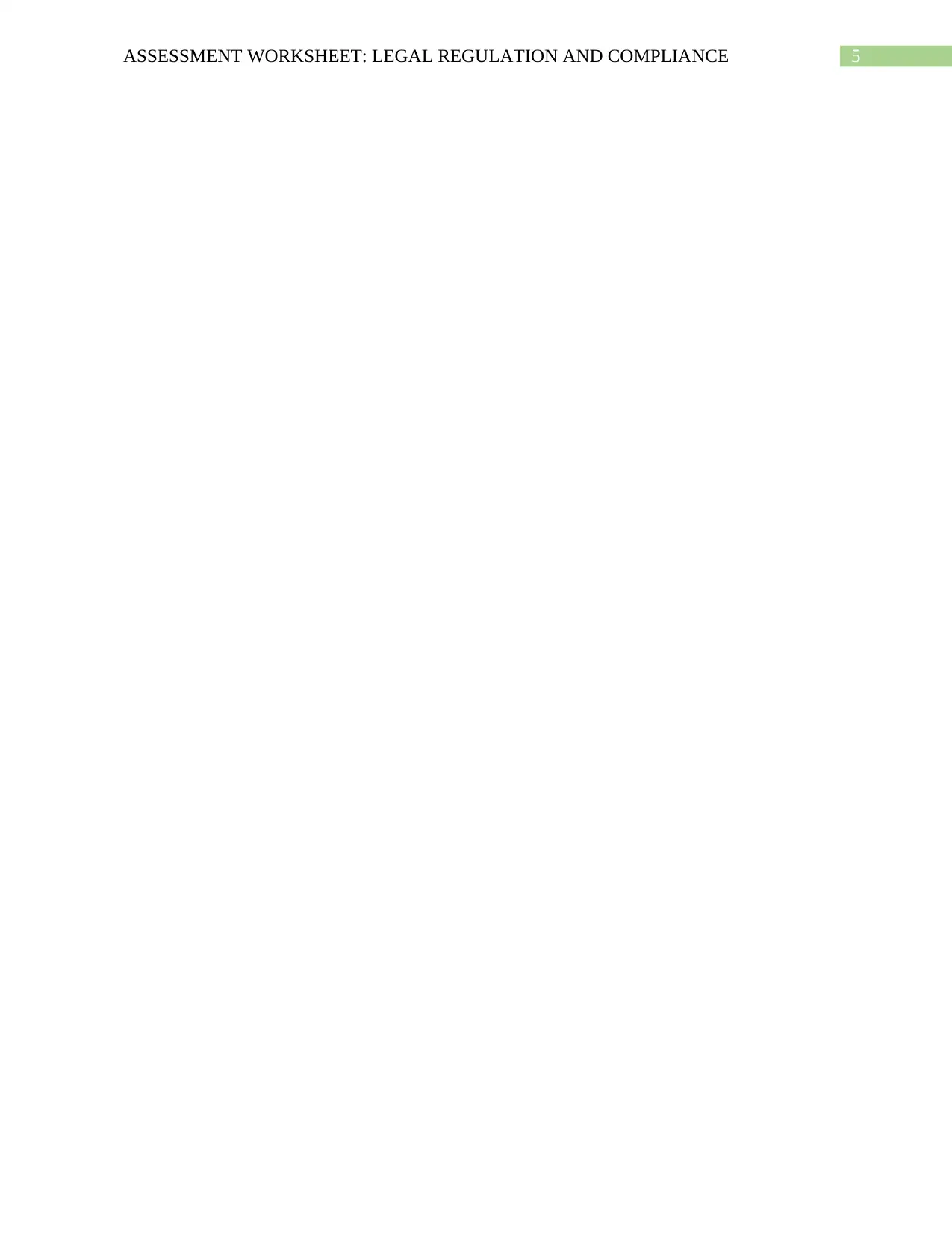





![[object Object]](/_next/static/media/star-bottom.7253800d.svg)